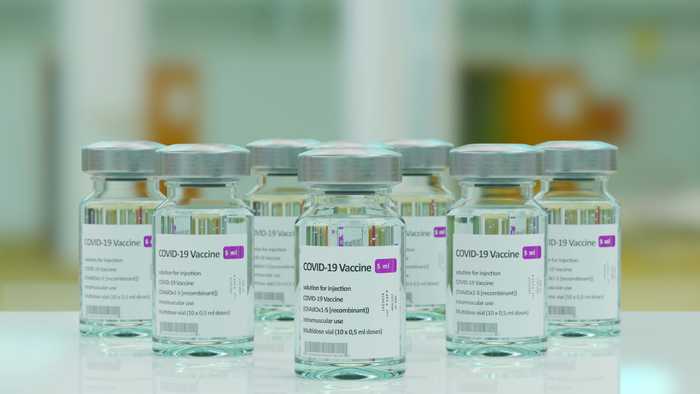Published 13:47 IST, April 30th 2024
Thrombosis thrombocytopenia syndrome (TTS) is a very rare syndrome, occurring in one among millions after taking the COVID vaccine.
Advertisement
A London-based newspaper has reported that AstraZeneca, a UK-based pharmaceutical giant, has admitted for the first time that its COVID-19 vaccine can lead to a rare side effect called Thrombosis with Thrombocytopenia Syndrome (TTS). AstraZeneca has made the significant admission in court documents, which has shocked millions of people around the world who took the vaccine, including Indians who know it by the name of Covishield. Let us know a little more about TTS.
What is Thrombosis Thrombocytopenia Syndrome?
Thrombosis thrombocytopenia syndrome (TTS) is a very rare syndrome, occurring in one among millions. It occurs when a person has blood clots together with a low platelet count. It's also referred to as 'vaccine-induced immune thrombotic thrombocytopenia' (VITT).
Advertisement
-1714462901409.webp)
According to the website of Health Direct Australia, “Thrombosis is the formation of a blood clot, which can reduce normal blood flow in an affected blood vessel. Thrombocytopenia is a condition where there aren't enough platelets in the blood. Platelets normally help the blood to clot (clump), which stops you from bleeding excessively (for example, if you cut yourself).”
How is TTS linked to the AstraZeneca vaccine?
TTS is a very rare side effect that was seen in some people after getting the AstraZeneca COVID-19 vaccine. A class action lawsuit in the USA has finally got the company to accept that TTS is rare, but it is a side effect of the vaccine.
Advertisement
As per Health Direct Australia, the process that causes TTS is not fully understood. It is thought to be similar to heparin-induced thrombocytopenia (HIT). This is a rare reaction to a medicine called heparin that affects how platelets work.
The blood clots can occur in different parts of the body, including:
Advertisement
- Brain (called cerebral venous sinus thrombosis, or CVST)
- Abdomen (splanchnic vein thrombosis)
- Lungs (pulmonary embolism)
- Limb veins (deep vein thrombosis (DVT))
- Arteries (arterial thrombosis)
What are the symptoms of TTS?
As per an article by Healthline, the main symptoms of TTS are
- Shortness of breath
- Chest pain
- Nausea or vomiting
- Swelling in your legs
- Persistent stomach pain
- Severe headaches
- Hazy, blurry vision or other vision changes
- Easy bruising
- Tiny blood spots under the skin

How do doctors diagnose TTS?
As per a peer reviewed journal in Wiley, to diagnose TTS, a doctor will perform a physical exam and ask about complete medical history. Here are some of the tests that might be ordered
Advertisement
- Complete blood count (CBC) with platelet count to look at platelet levels
- Fibrinogen test to assess the blood’s clotting properties
- D-dimer test to look for the signs of blood clots
- Imaging may be done, if the doctors suspect blood clots in one of the organs.
13:46 IST, April 30th 2024